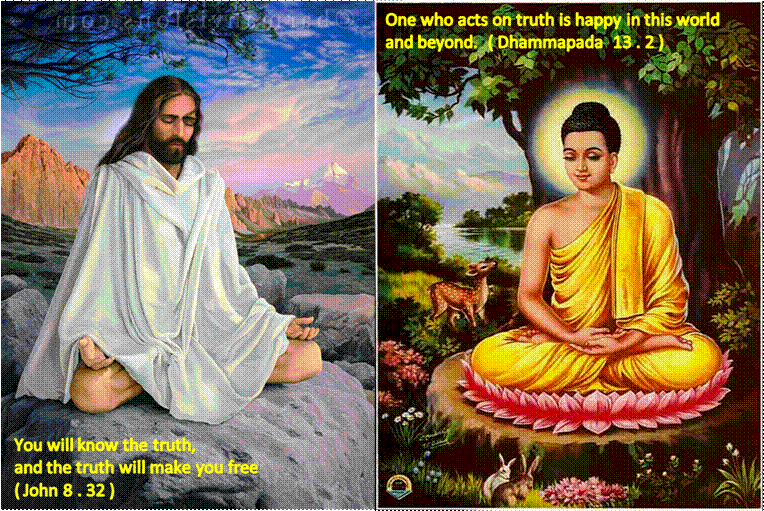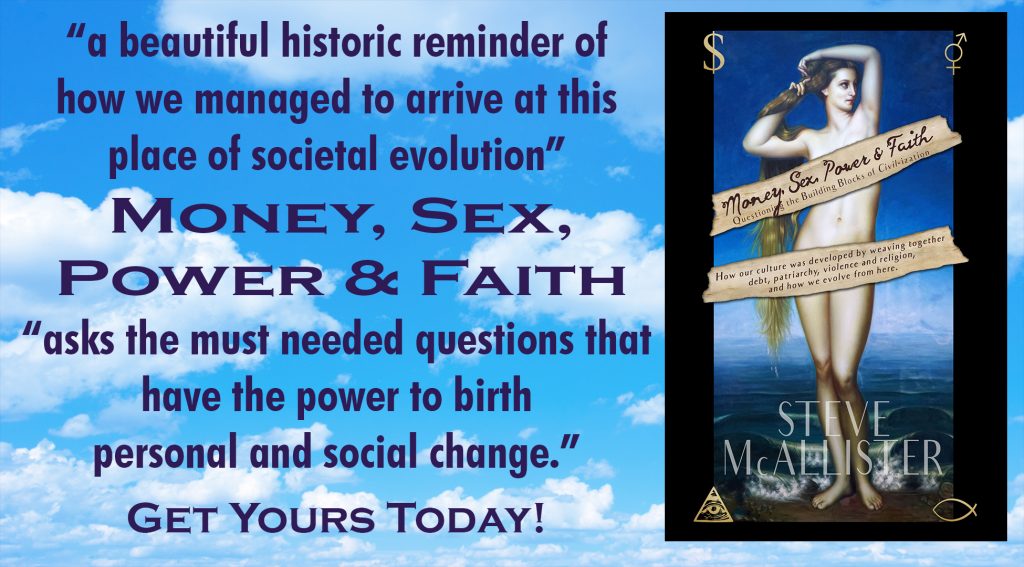The following is a chapter from Money, Sex, Power & Faith.
Order your copy in paperback or for Kindle!
The Pentateuch, also called the Torah, including Genesis, Exodus, Leviticus, Numbers, and Deuteronomy, were largely crafted between the years 538–332 BC, a time when slavery was well accepted and males had become the dominant sex of the species as the boys began to play with their new toy, money. Like today, those with money started to gain influence, and around 500 BC, Rome replaced its monarchy with an aristocratic republic, basically a smaller version of the plutocracy governing the US government today, and Athens ushered in the world’s first democracy, albeit a “privileged men only” version of it.
The use of coins, banking, and other monetary ingenuities continued to spread throughout Europe, Asia, and Africa over the next few centuries. So ingrained was the idea of money, Aristotle, known as the father of political science, said that every object has two uses – the use for which it was designed and the value for which it can be traded. With the ensuing use of money, things weren’t just things anymore. They were things that could buy other things, and it changed our entire way of doing things.
Also around this time in Nepal, Siddhartha Gautama came into the picture, and the teachings of the affluent prince who gave up his throne to seek enlightenment started to spread. Sheltered by a childhood of vast wealth, legend has it that when a 29 year old Siddhartha was finally faced with the old age, death, and decay that occurred outside the walls of his palace, he left his arranged marriage and the trappings of material possessions to look for a way beyond the suffering of ordinary life. His time of self inflicted asceticism, including denying himself even the sustenance of food to the point of near death, balanced with his young life of opulence, led Siddhartha to the Middle Way, which has guided his followers down the path of moderation as the development of the monetary civilization has created both the paths of poverty and opulence on either side.
Like the Jubilee provisions of Judaism, or the words of Jesus that would come to follow, the words of Buddha were not necessarily embraced by the entirety of the culture, nor even the entirety of the religion which would emerge around the teachings. Yet in each instance, as it is for every spiritual luminary that has warned of the dangers of money on the journey to happiness, the teachings have still saved many from peril.
Buddhism is thought to have been brought to China from India during the Han Dynasty between the years 200 BC – 200 AD, roughly the same time Jesus is reported to have been trying to straighten out the the mess in Mesopotamia. It also aligned quite nicely with China’s latest rage, money made from one foot square pieces of white deerskin leather, the prototype for paper money. As people were starting to up their game of finance, Buddha came along talking about the Middle Way of moderation, just about the time they needed a reality check before creating their new reality of money.

Similarly, shortly before Jesus broke onto the scene, Caesar Augustus founded the Roman Empire, based largely on making cheaper money and instituting tax reforms that would change our entire relationship with the planet and one another. In addition to the pure solid and gold coins with his image on them, Augustus added brass and copper coins into the mix so that all of the people of the land would be able to pay sales taxes, flat-rate poll taxes, and the basis of the property tax, the land tax. Just as China was braced for the leather dollar and the often delirious and deleterious effects that money can have on people by the introduction of Buddhism, an argument might be made that Christ’s monumental appearance, and it’s subsequent splitting of what we know as time, may have been some sort of cosmic answer to the ramifications of the Roman Empire’s new economic innovations.
Order your copy of Money, Sex, Power & Faith today!


